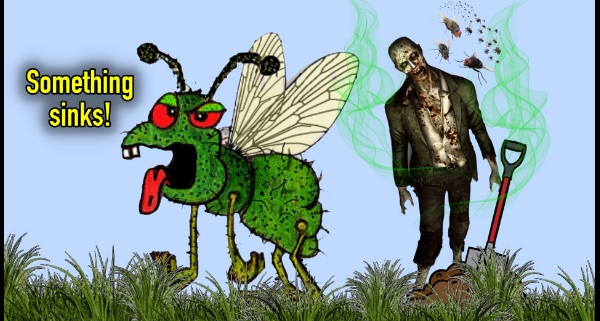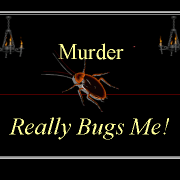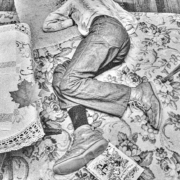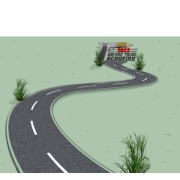Postmortem Decomposition: How To Properly Rot Your Corpses
Putrefaction is the destruction of the soft tissue caused by two things, bacteria and enzymes.
As bacteria and enzymes do their jobs, the body immediately begins to discolor, and it slowly transform into liquids and gases. The odd thing about the bacteria that destroys the tissue at death is that much of it has been living in the respiratory and intestinal tracts all along. Of course, if the deceased had contracted a bacterial infection prior to death, bacteria, such as septicemia (blood poisoning), would aid in increasing the rate of decomposition.
Temperature also plays an important part in decomposition. 70 to 100 degrees Fahrenheit is the optimal range for bacteria and enzymes to do what they do best, while lower temperatures slow the process. Therefore, and obviously, a body will decompose faster during the sweltering days of summertime.
A blood-filled circulatory system acts as a super-highway for those organisms that destroy the body after death. Without blood the process of putrefaction is slowed.
Therefore, a murder victim whose body bled out will decompose at a slower rate than someone who died of natural causes.
People who were overweight at the time of their deaths decompose faster than skinny people. People who suffered from excessive fluid build up decompose faster than those who were dehydrated. And people with massive infections and congestive heart failure will also decompose at a more rapid rate than those without those conditions.
Bodies adorned in thick, heavy clothing (the material retains heat) decompose more rapidly than the norm. Electric blankets also speed up decomposition.
A body that’s buried in warm soil may decompose faster than one that’s buried during the dead of winter.
The type of soil that surrounds the body also has an effect on the rate of decomposition. For example, the soil in North Carolina is normally a reddish type of clay. Its density can greatly retard the decomposition process because it reduces the circulation of air that’s found in a less compacted, more sandy-type of earth.
Adult bodies buried in a well drained soil will typically become skeletonized in approximately 10 years. A child’s body in about five years.
The rule of thumb for the decomposition of a body is, (if at the same temperature) 8 weeks in well-drained soil equals two weeks in the water, or one week exposed to the air.
Now, hold on to your breakfast…
The first sign of decomposition under average conditions is a greenish discoloration of the skin at the abdomen. This is apparent at 36-72 hours.
Next – Small vessels in the skin become visible (marbling).
Marbling is followed by glistening skin, skin slippage, purplish skin, blisters, distended abdomen (after one week—caused by gases), blood-stained fluid oozing from body openings (nose, mouth, etc.), swelling of tissue and the presence of foul gaseous odor, greenish-purple face, swollen eyelids and pouting lips, swollen face, protruding tongue, hair pulls out easily, fingernails come off easily, skin from hands pulls off (gloving), body swells and appears greatly obese.
Internally, the body is decomposing and breaking down. The heart has become flabby and soft. The liver has honeycombed, and the kidneys are like wet sponges. The brain is nearly liquid, and the lungs may be a bit brittle.
Hmm … Flabby hearts and liquid brains. Sounds like a couple of my former employers.

To qualify for this amazing deal, you must register or already be registered to attend the 2022 Writers’ Police Academy. That’s step one. Step two – have a friend sign up to attend. It’s that easy! If your friend brings a friend then they, too, receive the same bonus opportunity.
 Of course, you and your friend must attend the Writers’ Police Academy event in June to receive the rebate and free seminar registration. There is no limit as to how many rebates you may receive. If you refer ten friends and they each attend the WPA, well, you’ll receive $50 for each one. Twenty friends equal a rebate of $1,000! And so on.
Of course, you and your friend must attend the Writers’ Police Academy event in June to receive the rebate and free seminar registration. There is no limit as to how many rebates you may receive. If you refer ten friends and they each attend the WPA, well, you’ll receive $50 for each one. Twenty friends equal a rebate of $1,000! And so on.
 Register to attend at the 2022 Writers’ Police Academy at www.writerspoliceacademy.com
Register to attend at the 2022 Writers’ Police Academy at www.writerspoliceacademy.comClick here to read about the 2022 WPA instructors and presenters.
About Dr. Katherine Ramsland
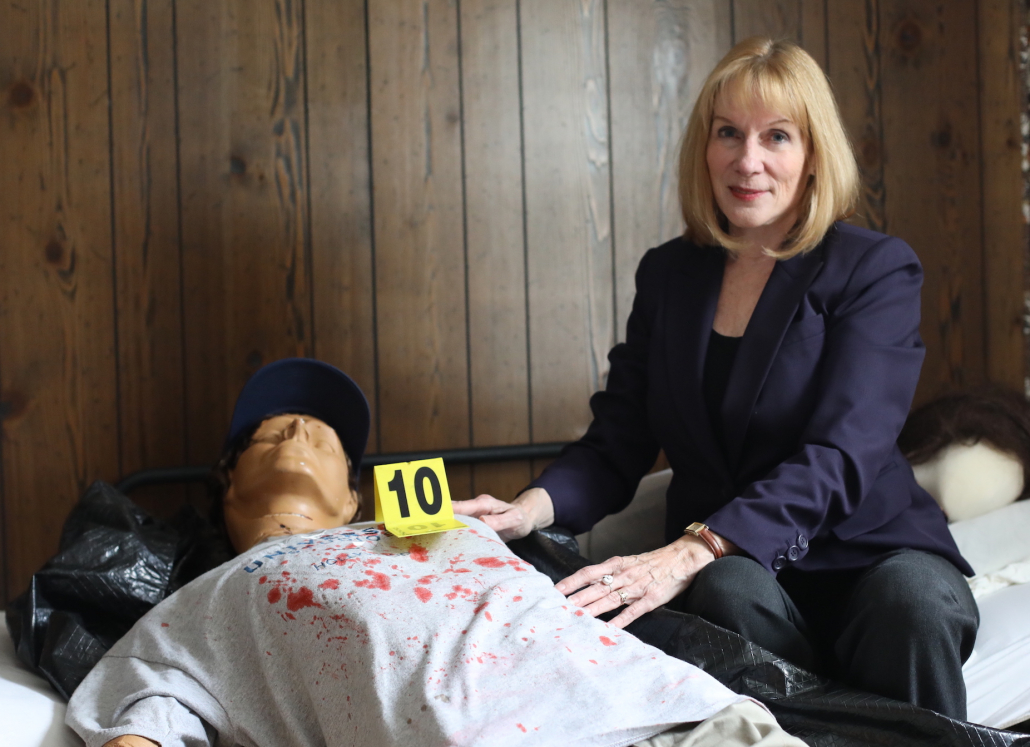
Dr. Katherine Ramsland
Dr. Katherine Ramsland teaches forensic psychology at DeSales University in Pennsylvania, where she is the Assistant Provost. She has appeared on more than 200 crime documentaries and magazine shows, is an executive producer of Murder House Flip, and has consulted for CSI, Bones, and The Alienist. The author of more than 1,500 articles and 69 books, including The Forensic Science of CSI, The Forensic Psychology of Criminal Minds, How to Catch a Killer, The Psychology of Death Investigations, and Confession of a Serial Killer: The Untold Story of Dennis Rader, The BTK Killer, she was co-executive producer for the Wolf Entertainment/A&E documentary based on the years she spent talking with Rader. Dr. Ramsland consults on death investigations, pens a blog for Psychology Today, and is writing a fiction series based on a female forensic psychologist.
Dr. Ramsland is a Special Guest Speaker at the 2022 Writers’ Police Academy, where she’ll present “Conversations with the B.T.K. Killer, Dennis Rader.” The class focuses on the immersive process of interviewing a serial killer, the challenges of the prison system for such work, and the experience of co-producing the documentary. After hundreds of hours spent inside the mind of this serial killer, the B.T.K. Killer, Dennis Rader, in the context of many other killers Dr. Ramsland studied, she offers multiple insights for crime and mystery writing.

Sign up today!

